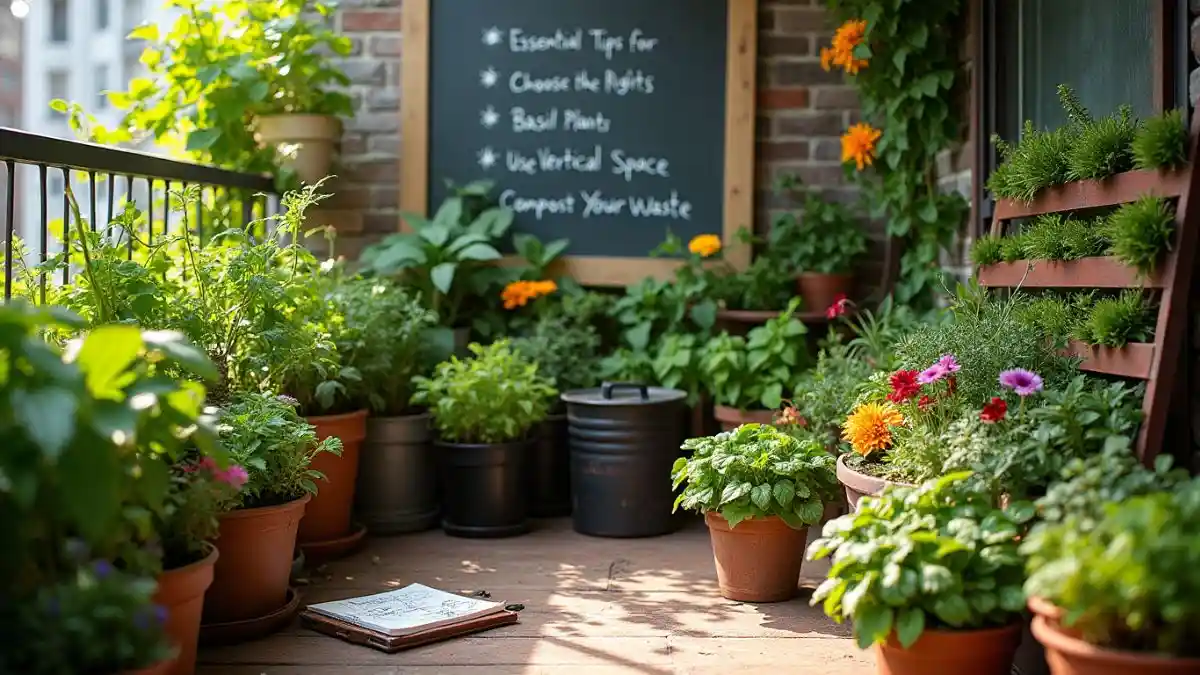Why Urban Organic Gardening is Transforming City Life
Imagine stepping onto your balcony or rooftop and being greeted by a lush, green oasis of fresh herbs, vegetables, and flowers—all grown organically by your own hands. Urban organic gardening is more than just a trend; it’s a movement that reconnects city dwellers with nature, promotes sustainability, and provides fresh, healthy produce. Whether you’re a seasoned gardener or a beginner, these 7 essential tips will help you create a thriving urban garden, no matter how small your space.
As an urban organic gardener, you’re not just growing plants—you’re cultivating a healthier lifestyle, reducing your carbon footprint, and bringing nature back into the concrete jungle. Let’s dive into how you can start and maintain a successful urban organic garden.
Table of Contents
What is an Urban Organic Gardener?
An urban organic gardener is someone who grows plants, vegetables, and herbs in city environments using organic, sustainable practices. This means avoiding synthetic fertilizers and pesticides, focusing on natural soil health, and making the most of limited space.
Why Become an Urban Organic Gardener?
- Fresh, Healthy Produce: Grow your own chemical-free fruits, vegetables, and herbs.
- Mental Health Benefits: Gardening reduces stress and improves mental well-being.
- Environmental Impact: Reduce food miles and promote biodiversity in urban areas.
Challenges You Might Face
- Limited space in apartments or small balconies.
- Pollution from traffic and industrial areas.
- Lack of direct sunlight in densely built neighborhoods.
Despite these challenges, with the right strategies, you can create a thriving urban garden.
7 Essential Tips for Thriving City Gardens
Start Small: Choose the Right Plants for Your Space
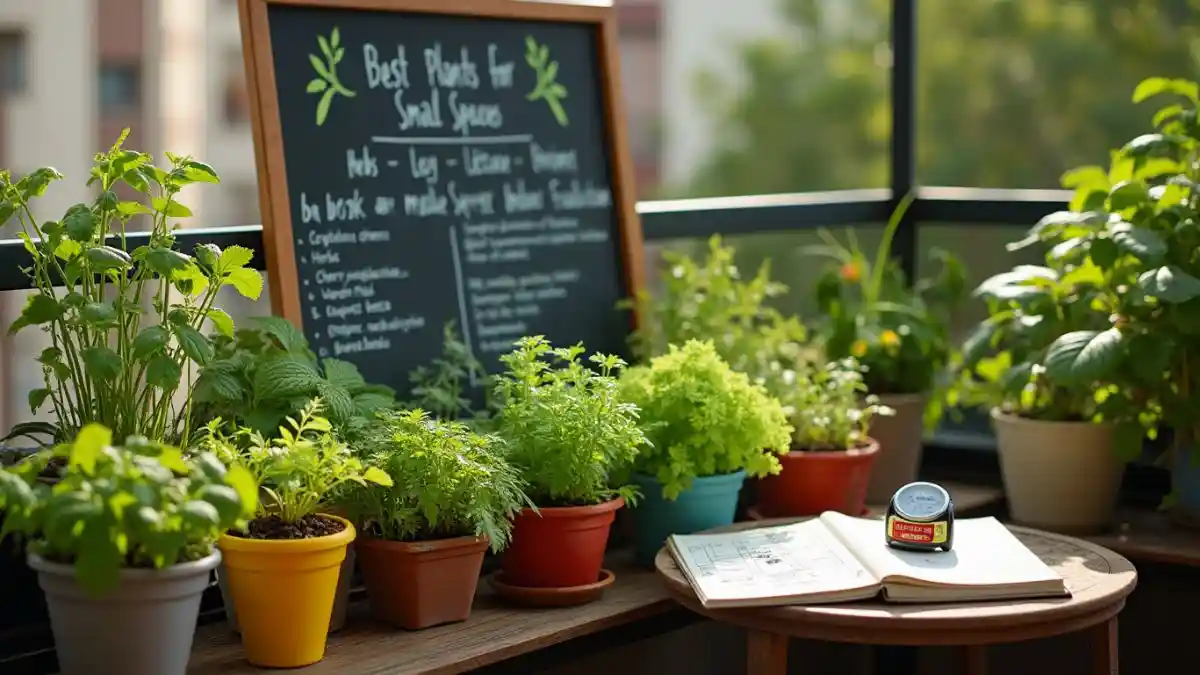
When starting as an urban organic gardener, it’s crucial to select plants that suit your environment. Not all plants thrive in small spaces or urban conditions.
Best Plants for Small Spaces
- Herbs: Basil, mint, parsley, and cilantro.
- Leafy Greens: Lettuce, spinach, and kale.
- Compact Vegetables: Cherry tomatoes, peppers, and dwarf varieties of beans.
Consider Your Environment
- Sunlight: Vegetables typically require 6 to 8 hours of sunlight each day to thrive.
- Wind: Balconies and rooftops can be windy—choose sturdy plants.
- Space: Use containers that fit your available area.
Table: Best Plants for Urban Organic Gardening
| Plant | Sunlight Needed | Space Required |
| Basil | 6-8 hours | Small pot |
| Cherry Tomatoes | 8+ hours | Medium container |
| Lettuce | 4-6 hours | Shallow planter |
Use Organic Soil and Compost
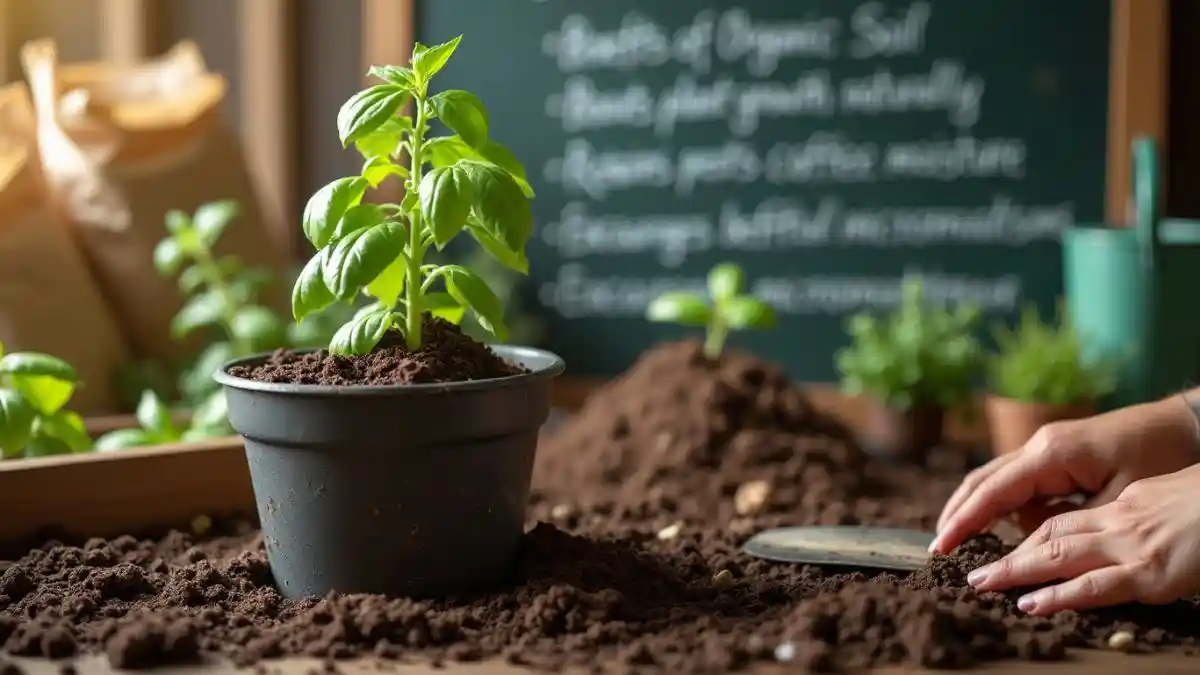
The key to a thriving garden lies in having healthy soil. If you’re an urban gardener, it’s essential to focus on soil that is rich in nutrients and free from chemicals.
Why Organic Soil Matters
- Improves plant health and yield.
- Reduces environmental impact by avoiding synthetic chemicals.
- Enhances soil structure over time.
How to Create Your Own Compost
- Collect kitchen scraps like vegetable peels, coffee grounds, and eggshells.
- Layer with dry materials like leaves or cardboard.
- Regularly mix the pile to accelerate the decomposition process.
List: Benefits of Organic Soil
- Boosts plant growth naturally.
- Retains moisture better than synthetic alternatives.
- Encourages beneficial microorganisms.
Maximize Space with Vertical Gardening
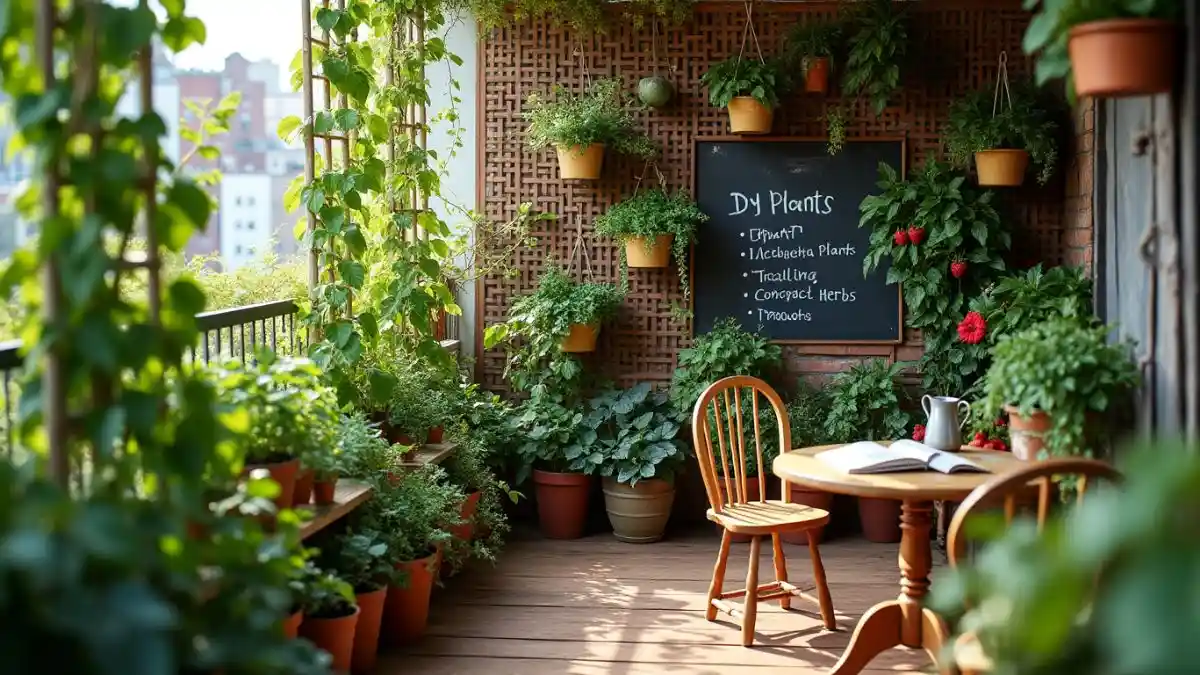
Space is often limited in urban environments, but vertical gardening allows you to grow more in less area.
Vertical Gardening Techniques
- Trellises: Perfect for climbing plants like beans and peas.
- Wall Planters: Attach to walls or fences for herbs and flowers.
- Hanging Baskets: Ideal for trailing plants like strawberries.
Best Plants for Vertical Gardening
- Climbing beans and peas.
- Ivy and other trailing plants.
- Compact herbs like thyme and oregano.
Water Wisely: Efficient Irrigation Systems
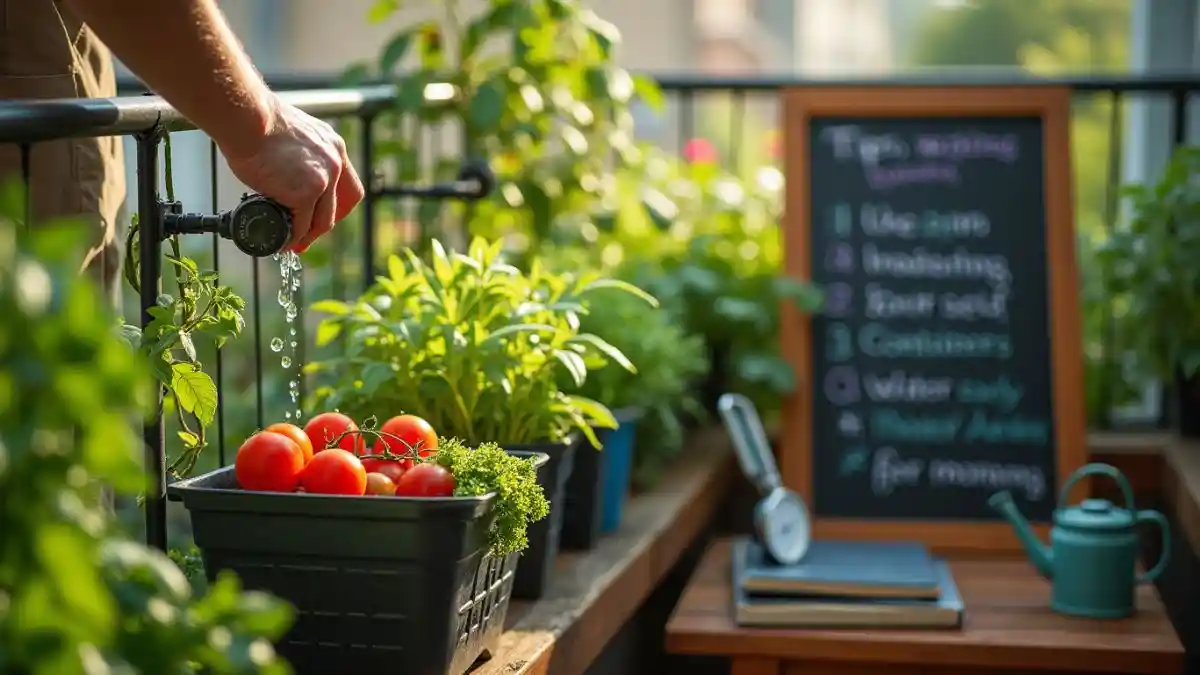
Water is a precious resource, especially in cities. Efficient watering systems ensure your plants thrive without waste.
Tips for Watering Your Urban Garden
- Use drip irrigation for consistent moisture.
- Self-watering containers are great for busy gardeners.
- Water your plants early in the morning to minimize water loss from evaporation.
List: Signs of Watering Issues
- Overwatering: Yellow leaves, root rot.
- Underwatering: Dry soil, wilting plants.
Combat Urban Pollution: Protect Your Plants
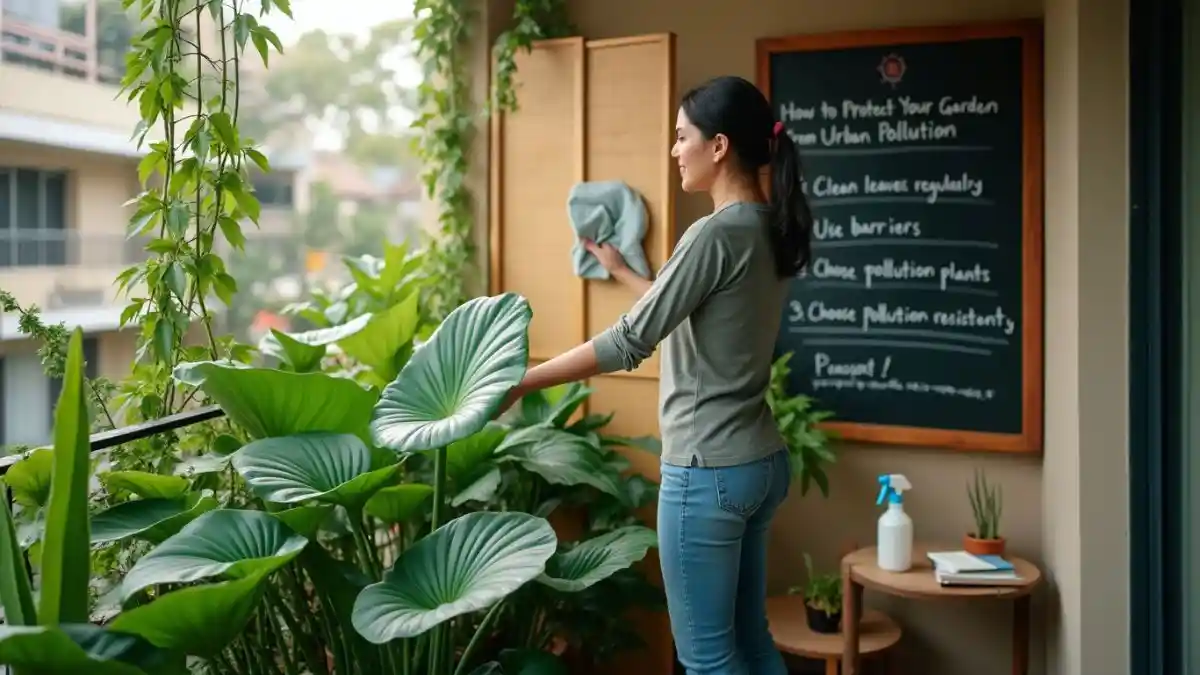
Urban pollution can harm your plants, but there are ways to minimize its impact.
How to Protect Your Garden
- Clean leaves regularly to remove dust and pollutants.
- Use barriers like screens or fences to block traffic fumes.
- Choose pollution-resistant plants like spider plants and aloe vera.
Embrace Companion Planting for Natural Pest Control
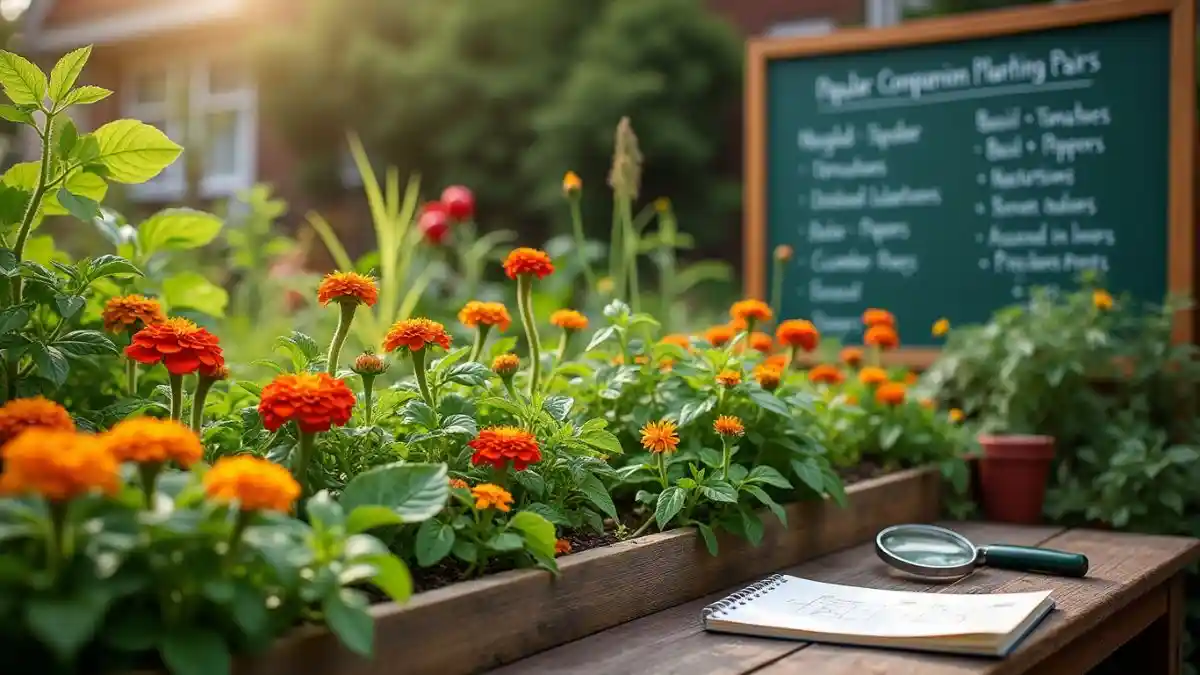
Companion planting is a natural way to deter pests and improve plant health.
Popular Companion Planting Pairs
- Marigolds with tomatoes to repel aphids.
- Basil with peppers to enhance flavor and deter pests.
- Nasturtiums with cucumbers to attract beneficial insects.
Stay Consistent: Regular Maintenance is Key
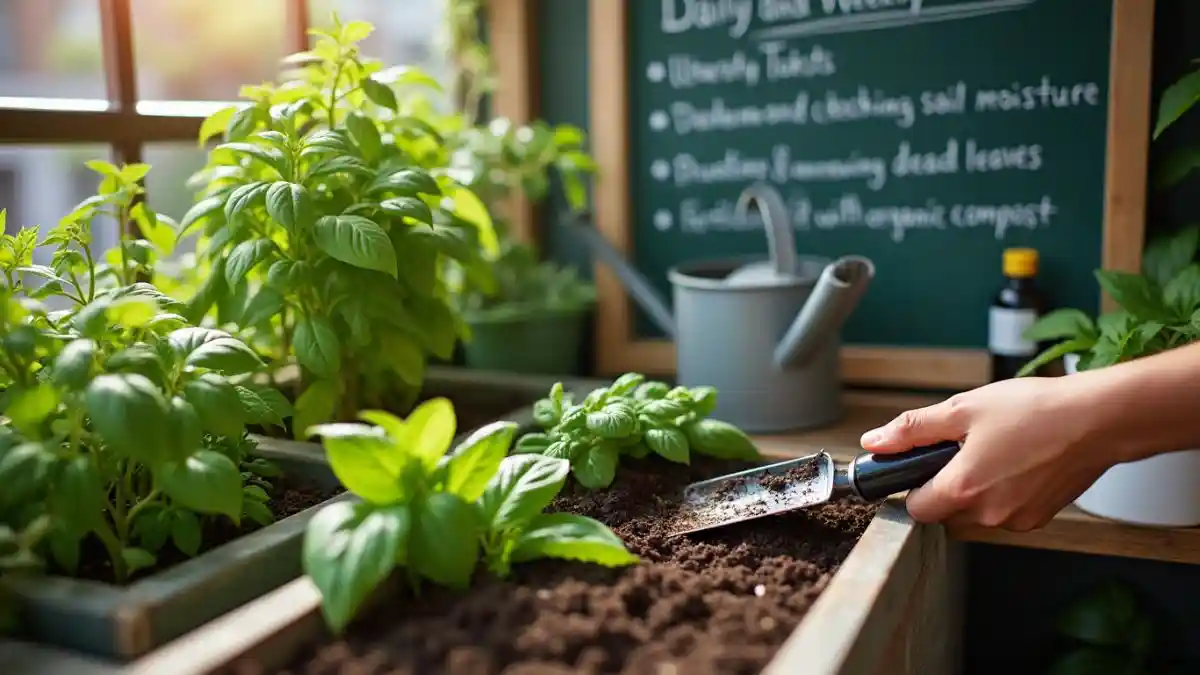
A thriving urban organic garden requires regular care and attention.
Daily and Weekly Tasks
- Watering and checking soil moisture.
- Pruning and removing dead leaves.
- Fertilizing with organic compost or liquid fertilizers.
Essential Tools for Urban Gardeners
- Hand trowel and pruning shears.
- Watering can with a narrow spout.
- Gloves and a small rake.
Conclusion – Grow Your Urban Organic Garden with Confidence
Urban organic gardening is not just about growing plants; it’s about cultivating a sustainable lifestyle, reconnecting with nature, and enjoying the fruits of your labor. By following these 7 essential tips, you can transform even the smallest city space into a thriving green haven. Start your journey today and become an urban gardener who inspires others to grow!
FAQ Section
1. What is an urban organic gardener?
An urban organic gardener grows plants, vegetables, and herbs in city environments using organic, sustainable methods.
2. What are the best plants for urban organic gardening?
Herbs like basil and mint, leafy greens like lettuce, and compact vegetables like cherry tomatoes are ideal for small spaces.
3. How do I start an urban organic garden?
Start small, choose the right plants, use organic soil, and maximize space with vertical gardening techniques.
4. How can I protect my urban garden from pollution?
Clean leaves regularly, use barriers, and choose pollution-resistant plants to minimize the impact of urban pollution.
5. Why is companion planting important for urban organic gardeners?
Companion planting helps control pests naturally, improves plant growth, and reduces the need for chemical pesticides.
6. Can I grow vegetables indoors as an urban organic gardener?
Yes! Many vegetables, like herbs, lettuce, and microgreens, thrive indoors with proper light and care.
7. How much sunlight do urban gardens need?
Most vegetables require 6-8 hours of sunlight daily. If sunlight is limited, consider shade-tolerant plants like spinach or kale.
8. What are the benefits of composting for urban gardens?
Composting enriches soil, reduces waste, and provides a natural source of nutrients for your plants.
9. How do I deal with pests in an organic urban garden?
Use natural pest control methods like companion planting, neem oil, or introducing beneficial insects like ladybugs.
10. Can I grow fruit trees in an urban organic garden?
Yes, dwarf fruit trees like citrus, figs, and apples can thrive in containers on balconies or rooftops.
11. What are the best containers for urban organic gardening?
Use lightweight, durable containers like fabric pots, plastic planters, or recycled materials. Ensure they have proper drainage.
12. How do I maximize sunlight in a shaded urban area?
Use reflective surfaces like mirrors or white walls to bounce light onto your plants. Choose shade-tolerant plants if sunlight is limited.
13. Can I use rainwater for my urban organic garden?
Yes, rainwater is ideal for organic gardening. Use a rain barrel to collect and store rainwater for your plants.
14. How do I prevent overwatering in container gardens?
Use containers with drainage holes, check soil moisture before watering, and avoid letting plants sit in standing water.
15. What are the best organic fertilizers for urban gardens?
Compost, worm castings, and organic liquid fertilizers like seaweed extract are excellent choices for urban organic gardens.
By following this guide, you’ll be well on your way to becoming a successful urban organic gardener. Share your progress and inspire others to join the movement!
Ready to start your urban organic garden? Share your journey with us in the comments below or tag us on social media with your garden photos! Let’s grow together!


